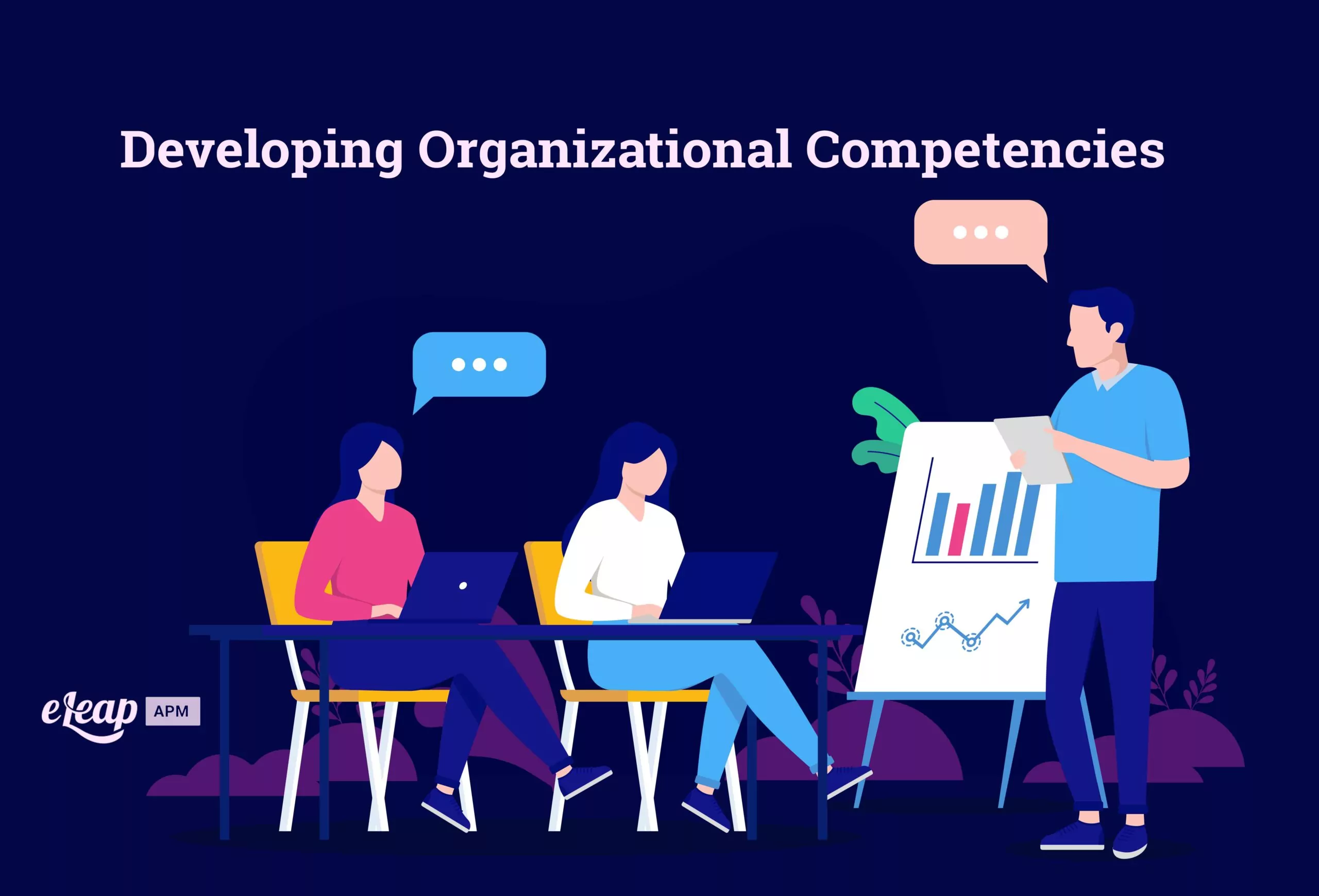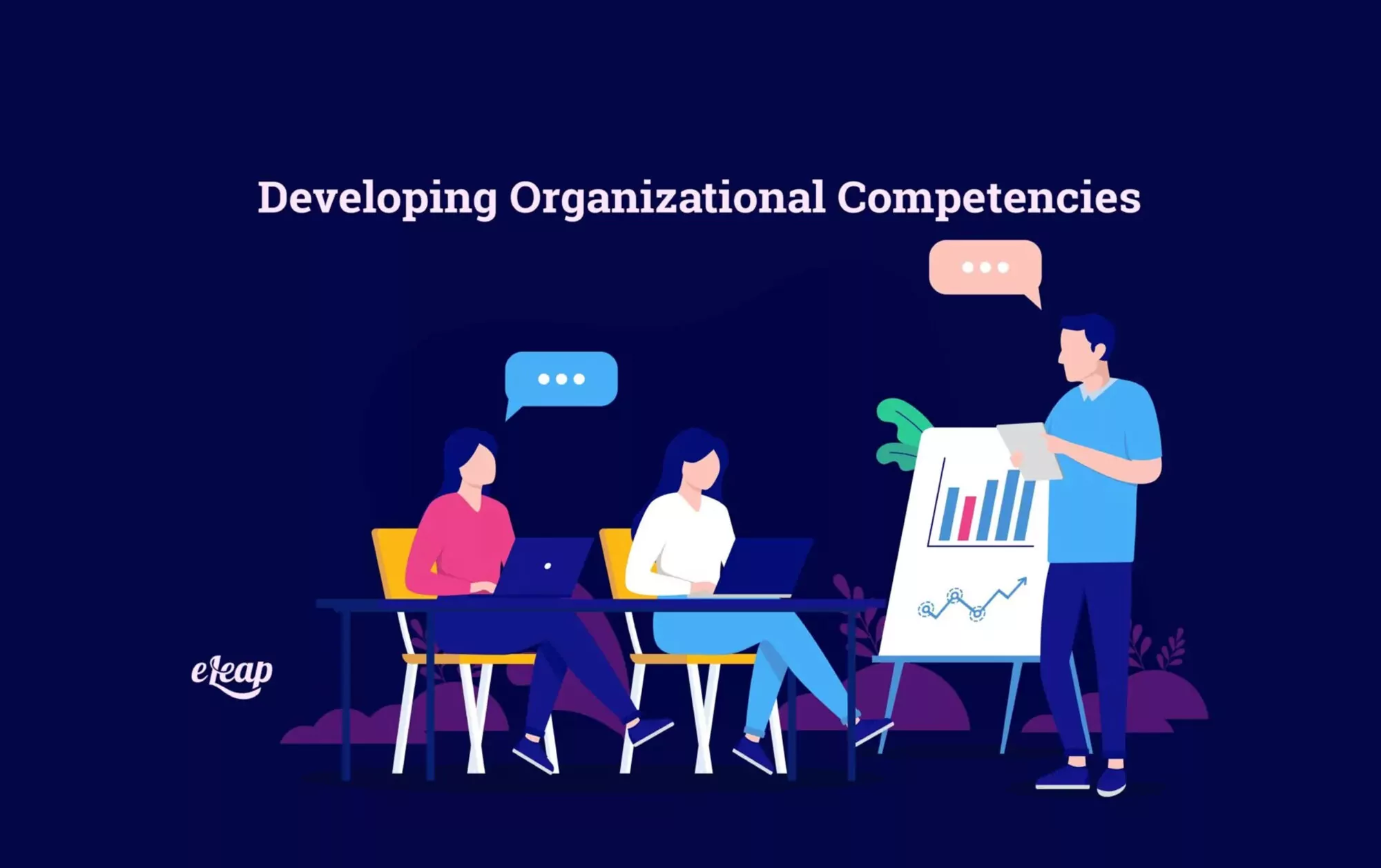Developing Organizational Competencies

Prioritizing organizational competencies in your workplace is an essential part of giving your team the tools and support they need to succeed. When you allow employees to grow their competencies, it helps the competency of the whole team grow as well.
The process of organizational competency growth is likely to be different for every company. However, there are some tips and tricks that you can use to tailor them to your team.
What Are Organizational Competencies?
Organizational competencies are the skills, knowledge sets, and attributes that the employees in your team possess. To put it simply, they are the set of standards for each role within your organization’s team.
When you focus on developing competencies based on an individual’s skills and interests, you are better set up to have the right people in the right positions. With this approach, you’ll likely see an improvement in coaching, morale, and productivity across the board.
Let’s look at some of the common organizational competencies you should focus on.

Business Mindset
This is the ability to look at problems and situations from the perspective of the business when making decisions. You should consider all decisions with the idea of business success and metrics in mind.
Maturity
Maturity relates to the ability to stay professional and dignified in all situations that arise at work. It also includes the ability to take responsibility for your actions, regardless of the outcome.
Problem Solving
Solving problems comes down to having the desire to come up with the best solution for your team and business. It includes taking time to thoroughly consider many options and not rushing to decisions based on short-sighted views.
Being Decisive
Decisiveness comes down to making quick decisions that are still well thought out. It also includes helping the other people on your team make the same quality of decisions. Decisiveness has the main goal of always moving forward as a team.
Flexibility
The skill of being flexible allows you to not become frustrated when roadblocks arise at work. Not only that, but it also gives you the skills to give your teammates clarity when they need it. When flexible people work together, gaps in knowledge or roadblocks on the way to your deadline become less of a stressor.
Growth-focused
Having coaching and feedback be part of your work environment is an essential organizational competency. When you embrace these aspects of growth and effectively apply them, it helps develop every employee both professionally and personally.
Having Strategy
It’s important to have reason and purpose behind every decision you make at work. If you’re only focused on the current day, it can cause your strategy to get lost in the chaos that the day may bring. Having a thought-out plan for each project and long-term goal helps you stay focused and produce better results.
What Makes Organizational Competencies Different Than Skills?
On the surface, organizational competencies may seem like the same thing as skills. However, competencies are the overall category that skills fall under. The skills an employee needs to succeed at work get grouped together into different competencies. Plus, a single competency may include many different skills working together.
Developing Organizational Competencies
Now that you have an idea of what organizational competencies are, it’s time to learn how to work on them with yourself and your team.
When you’re choosing the main competencies for your business, consider your core values. The competencies you choose to focus on should all tie back into those values. This allows for a bigger connection and purpose for each competency. When employees see this connection, they’re more likely to stay motivated to reach their goals.
It’s vital that you have humans in mind when you choose your competencies instead of data or reports. This will allow them to be more attainable and relatable, both of which are crucial for success. Consider talking to your team members and getting some insight into what qualities they find most important in the company. With this information, you can begin developing your organizational competencies.
How Many Organizational Competencies Should a Company Have?
It can be tempting to create a long list of competencies you want to see improve in your company. However, if you have too many, it can become overwhelming for you and your team. Most experts agree you should have no more than ten organization competencies.
Keep your company’s goals and vision in mind when choosing the competencies for you. It’s important to get opinions from people in various positions so you can have the most complete perspective of what values are most important.
Tips for Implementing Organizational Competencies
The sooner you can implement organizational competencies into your workplace, the sooner you’ll begin seeing the improvements they bring. Here are some tips on areas to focus on.
Time Management
When there’s a focus on managing time efficiently, productivity goes up, and so does efficiency. Distractions happen, especially when employees are working from home. However, it’s important to make sure distractions don’t become a constant issue.
One way to help with time management is to take larger tasks and break them down into smaller, more achievable ones. When you’re looking at the overall project, it can seem time-consuming and daunting to get started. Yet, when you break it down into smaller chunks of time, it becomes easier to manage.
When you have poor time management, it hurts your work quality and focus and can cause higher levels of stress. When it comes to time management, check these tips out:
- Prioritize daily tasks
- Avoid multitasking whenever possible
- Schedule breaks
- Know your limits – and don’t overextend yourself
Scheduling
This tip goes hand in hand with time management. Taking time to schedule out your day, week, and month can help you get a better understanding of your priorities. When you schedule your work, you can maintain a better balance throughout each work day.
Your schedule should include every piece of your work day: projects, emails, meetings, breaks, and any other engagements you have for the day. When you see it all laid out, you’re able to better prioritize your tasks.
Delegating
When you delegate, you’re able to hand off tasks to someone else who you trust can complete it. When you’ve taken the time to develop organizational competencies, you’ll have a better understanding of who is capable of which tasks.
Having this type of understanding allows you to properly delegate tasks to your team members. When you aren’t knowledgeable of what your employees excel at, you may end up giving them a task that will stress them out or overwhelm them.
This is also why scheduling is important too. When you’ve scheduled your priorities out, you’ll know in advance which tasks need delegating. Then, when your employees have been scheduled, they’ll know whether they can manage to take on one of your delegated tasks.
Collaborating
When your team successfully collaborates, everyone is able to bring their unique strengths to the table to create a high-quality project. If you want the most success with collaboration, you’ll need a healthy workplace culture. True collaboration isn’t forced and must happen organically through connections your employees have built.
When collaboration has been truly mastered by your team, the potential they have is much higher than it was. Individuals have their own weaknesses at work. Yet, when they work with people who are better in certain areas, they’ll be able to produce a better end result.
Goal Setting
No matter what organizational competencies your company chooses, setting goals that relate to them are crucial to success. Leaders, employees, and whole teams should all focus on setting and meeting goals. It’s best to have a good mix of both short and long-term goals so you can stay focused while also having smaller wins to celebrate along the way.
When it’s time to set goals, follow these steps:
- Brainstorm
- Prioritize the goals you come up with
- Consider which employees should help in which goals
- Come up with action plans
- Take action!
- Evaluate how performance has changed
- Don’t be afraid to be flexible along the way
Communication
As with any area of a healthy workplace, communication is key to successfully implementing organizational competencies. If your team is able to communicate well, it can build both trust and morale.
Communication starts with leadership. It’s vital that employees feel they have an open line of trust and communication with their managers. This makes feedback and coaching more successful. The better your team’s communication, the better their performance will be.
Takeaway
You should choose organizational competencies that reflect what’s important to your company. However, there are some tips that help you make the most of the ones you choose, regardless of your unique goals. Don’t confuse organizational competencies with skills. Skills are what make up competencies, so the competencies are the bigger picture of your company’s values.
When leadership is passionate able the company’s organizational competencies, it will make its way down to all levels of employees. That’s why it’s crucial to have managers buy into the organizational competencies your company has chosen to focus on. Their excitement will become contagious.